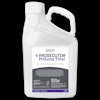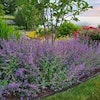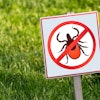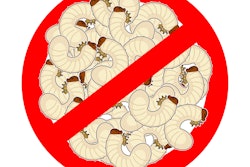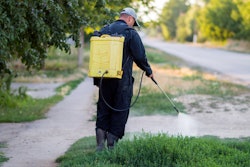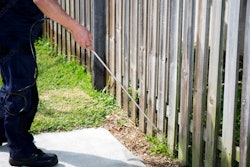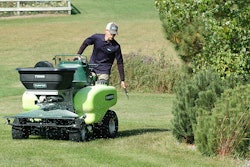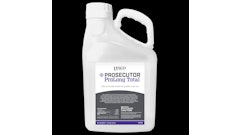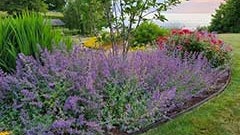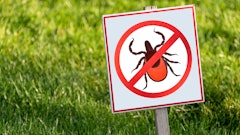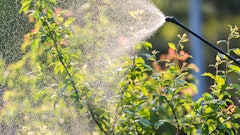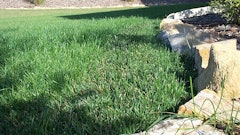
The first step to organic lawn care is knowing what type of pest or fungus you’re dealing with before you treat it. Then, you can determine the proper steps to take.
Here are a few steps to keeping a healthy lawn.
Proper lawn care
A good maintenance schedule is crucial. Selecting the right grass for your area, mowing at the correct height, removing or mowing leaves on the lawn and fertilizing at the correct time are all important steps. Many of the new seeds on the market are bred to be resistant to drought, insects and disease. Even at that, adequate maintenance is key to success.
Sometimes proper lawn maintenance demands the use of pesticides. For example, an infestation of fall armyworms can be devastating to golf courses, parks and other lawn and turf areas, and will likely need a chemical insecticide to get rid of them.
Know your insects
Knowing the life cycle of an insect makes it easier to know what to look for on your plants. Recognizing the adult insect enables you to search for its eggs and remove them.
Row covers
Knowing the life cycle of damaging insects and when they are active also tells you when to install row covers—another method of protecting plants. This is particularly effective for keeping out flying pests. Row cover material is tented over the plants, allowing water and light through while keeping the bugs out. You’ll need to remove the row cover after the insect danger has passed to allow birds, bees and butterflies to pollinate the plants. Row covers also help protect plants from extreme cold and heat.
Hand-picking insects
Removing insects and their eggs by hand and dousing them in soapy water is another way to prevent damage to plants. You can also put a bedsheet, tarp or other material on the ground under the plant and shake off the bugs onto the cloth. Slide the insects into a bucket of soapy water.
Other Steps
When shopping for plants, look for those labeled disease- or insect-resistant.
● Avoid planting just one type of plant, such as roses. If a disease strikes, such as the deadly and highly contagious rose rosette disease, all your roses are at risk.
● If a plant is susceptible to fungus diseases allow for good air circulation. Avoid overhead watering.
● Make sure to clean up plant debris from areas where you’ve treated insects or diseases.
Organic products
Organic and natural products are marked with an OMRI label. The Organic Materials Research Institute has certified the product is made with only organic ingredients.
